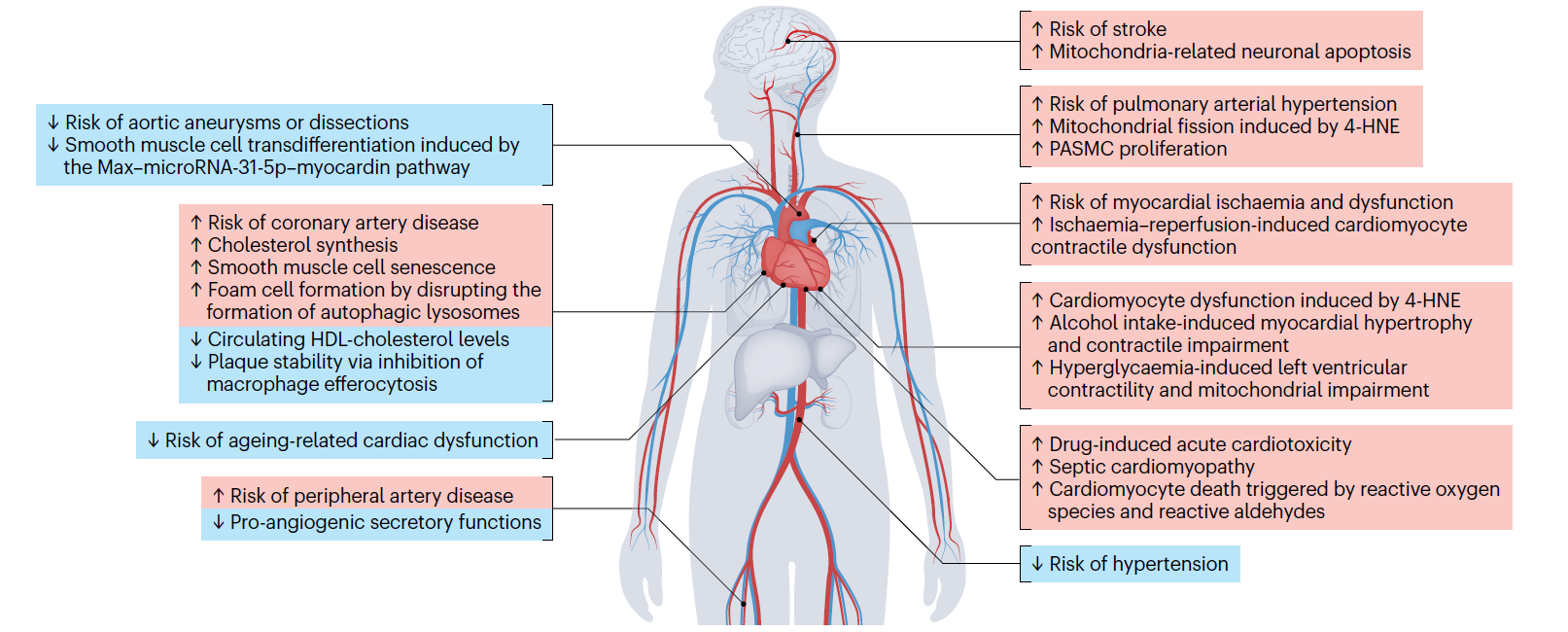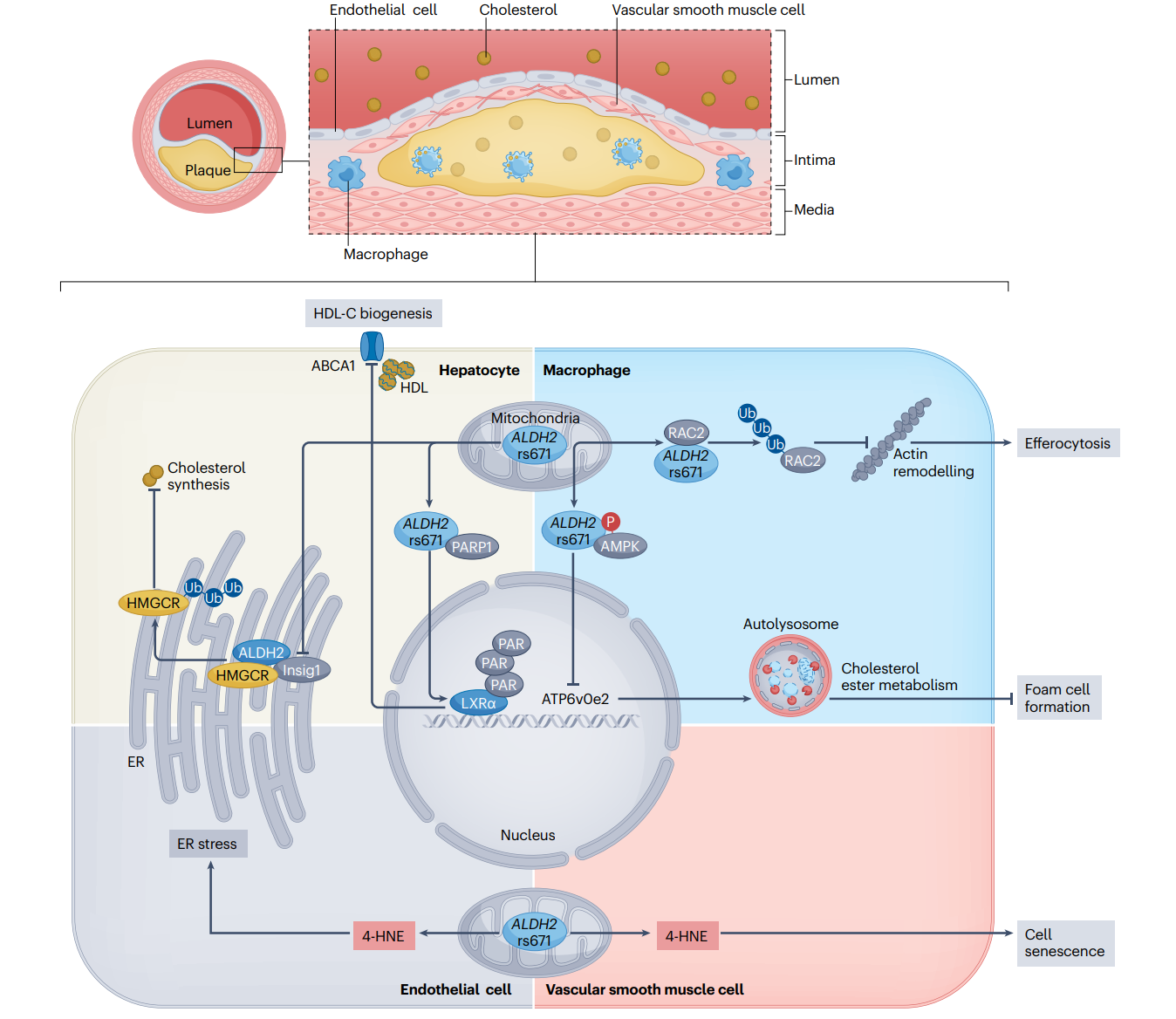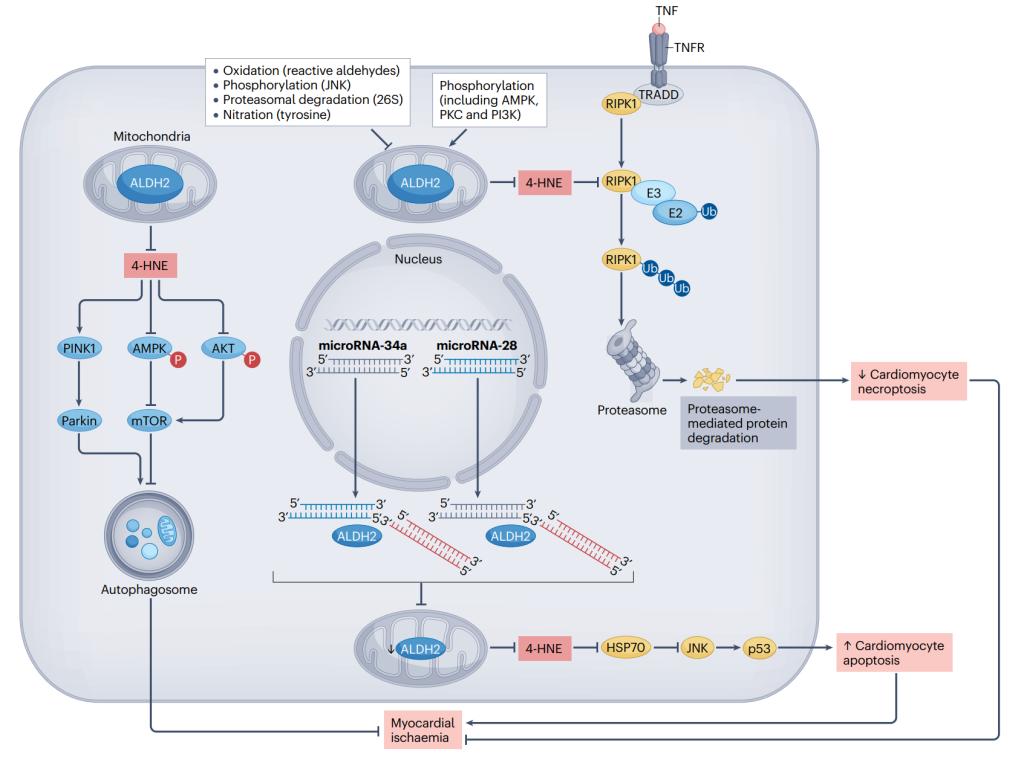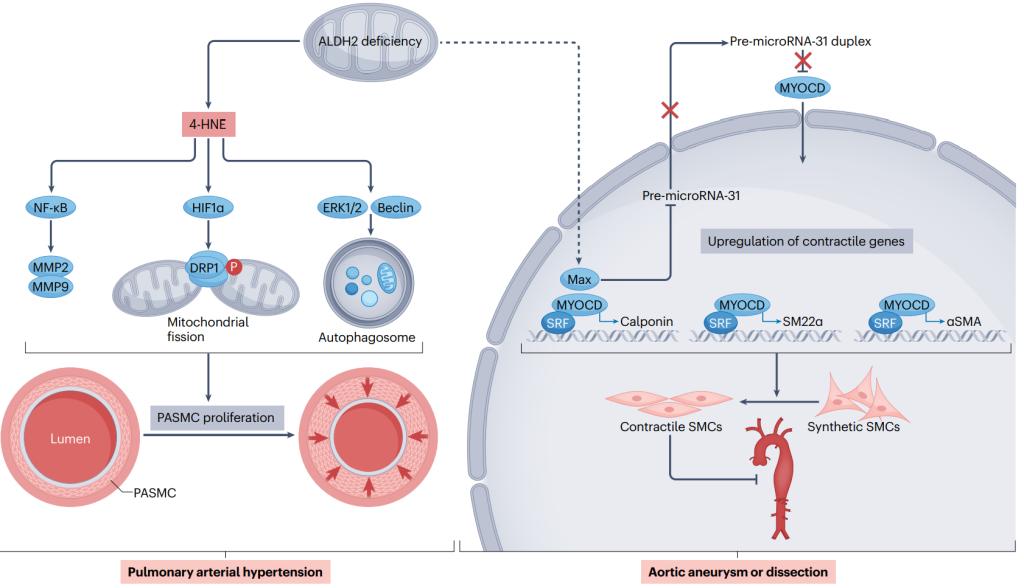Recently, Prof. Chen Yuguo/Xu Feng's team from the Department of Emergency Medicine, Qilu Hospital of Shandong University and Shandong Provincial Clinical Medicine Research Center for Emergency and Critical Care Medicine published a paper entitled “The role of aldehyde dehydrogenase 2 in cardiovascular disease” in the international top academic journal
Nature Reviews Cardiology (Chinese Academy of Sciences (CAS)District 1; IF=49.421). The paper systematically summarizes the latest research progress of aldehyde dehydrogenase 2 (ALDH2) in cardiovascular disease, comprehensively describes the key roles of ALDH2 dehydrogenase, esterase and non-enzymatic functions in disease development, proposes a new strategy for targeting ALDH2 in the prevention and treatment of cardiovascular disease (CVD), and looks forward to the future development of this field. Prof. Xu Feng and Prof. Chen Yuguo from Qilu Hospital of Shandong University and Prof. Yin Huiyong from Shanghai Institute of Nutrition and Health, CAS are the co-corresponding authors of this paper. Zhang Jian and Guo Yunyun from the Department of Emergency Medicine of Qilu Hospital and master student Zhao Xiangkai are the co-first authors.

CVD is the number one killer of human health, especially acute coronary syndrome, acute pulmonary embolism and aortic coarctation, which have rapid onset, rapid changes, high mortality rate, and disability rate. They are the key diseases treated in emergency departments and acute chest pain centers. The continuous exploration of their pathogenesis, searching for new efficient prevention and treatment targets and the development of translational research are hot issues of widespread concern in medical community and are of great significance for the prevention and treatment of CVD.
rs671 is one of the most common functional genetic variants in our population, and ALDH2 enzyme activity is significantly reduced after mutation of this locus, bringing about a series of effects. In the past 40 years, with the concerted efforts of scientists around the world (including authors of this paper), clinical and mechanistic studies of ALDH2 and various CVDs have made great progress. Clinical and basic experiments have confirmed that ALDH2 rs671 polymorphisms are associated with increased risk of multiple CVDs, including acute coronary syndrome, alcoholic cardiac dysfunction, hypoxic pulmonary hypertension, heart failure, pharmacological cardiotoxicity, and stroke, but people carrying the ALDH2 rs671 variant gene are at lower risk of age-related cardiac dysfunction, hypertension, and aortic aneurysm/clamping. The mechanism of action of ALDH2 has also made great progress in various experimental models of CVD, which has become a recognized new target with great potential for CVD prevention and treatment. Given the high mutation rate of ALDH2 rs671 in Chinese population (about 40% on average) and the low mutation rate in European and American Caucasians, pressing forward in this area is particularly important for the promotion of the precise prevention and treatment of major diseases in China. The challenge ahead is to translate these advances into more practical and effective clinical prevention and treatment protocols and strategies.
In this review, combining with their own series of innovative research results and experiences, authors systematically reviewed the historical line of ALDH2-related research from 1949 to the present (Figure 1), focused on the action map of ALDH2 in various types of CVD, and described in detail the biological structural basis and mechanism of action of ALDH2 in its enzymatic and non-enzymatic roles (Figure 2 -5). The authors then summarized and prospected the research on novel modulators targeting ALDH2 and future research directions, and innovatively proposed the "double-edged sword" characteristics of ALDH2 displayed in diseases and the targeted future prevention and treatment strategies, in order to further promote the precise prevention and treatment of these diseases.

Figure 1 Historical line of ALDH2-related studies from 1949 to the present

Figure 2 Action map of ALDH2 in various types of CVD

Figure 3 Mechanism of action of ALDH2 in coronary artery disease

Figure 4 Mechanism of action of ALDH2 in myocardial ischemia and related heart failure

Figure 5 Role of ALDH2 in pulmonary hypertension and aortic aneurysm/clamping
Prof. Chen Yuguo/Xu Feng's team has been focusing on precise prevention and treatment of acute and critical cardiovascular diseases, and has identified difficulties in clinical practice, analyzed and solved them through basic and translational research, and carried out a series of innovative research works in the international arena, especially The in-depth and systematic research on "ALDH2 affecting vascular diseases", establishing the status of ALDH2 rs671 as an important entry point for the precise prevention and treatment of acute CVD in China. Their work has been highly valued by the international academic community and has been reviewed by authoritative experts from Harvard University and Stanford University for many times. Over the years, the team has been committed to carrying out clinical-basic-translational research and exploring the establishment of individualized prevention and treatment protocols and strategies for acute and critical cardiovascular diseases in Chinese population based on different genotypes of ALDH2, and has achieved several important results. In the past five years, we have published many papers in authoritative and top journals (JAHA2018, ATVB 2019, Atherosclerosis 2020, Eur Heart J 2020, JCI Insight 2021, ATVB 2022, NRC 2023) and won the first and second prizes at provincial and ministerial level and the first prize of China Medical Science and Technology Award. The above research work has been funded by the National Natural Science Foundation of China, national and provincial key R&D programs, and special project of the Clinical Research Center of Shandong University, etc.
Link:
https://www.nature.com/articles/s41569-023-00839-5





